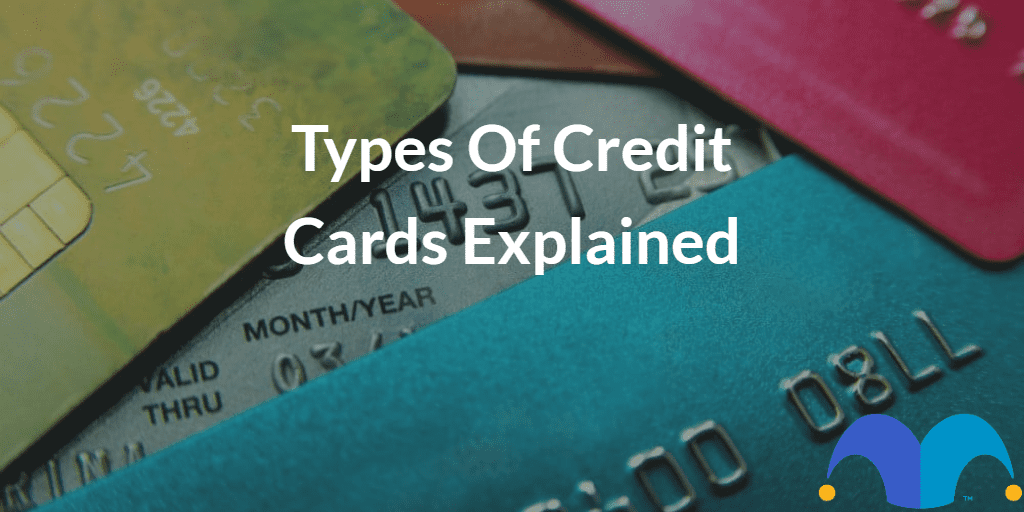With a credit card, you pay for goods and services up to a certain amount and then pay the balance down each month. However, with so many types of credit cards out there, how do you know which one is right for you?
Well, here’s an overview of the different types of credit cards available to help you make the right call.
7 types of credit cards
When you decide to apply for a credit card, the chances are you have a purpose in mind. For example, you might want to build your credit history or fund a large one-off purchase. So, it makes sense to group credit cards into categories based on:
- The features or key benefits they offer
- How these features might help you achieve your goal.
Let’s break down the seven main types of credit cards on offer, focusing on their key features.
1. Rewards cards
With rewards credit cards, you get rewards for each purchase you make. Rewards vary, but they include:
- Cashback
- Points
- Air miles (Avios points)
A rewards card might suit you if you shop in certain stores frequently. With the John Lewis Partnership Credit Card, for example, you get points for shopping in the store.
2. 0% new purchase cards
With this type of credit card, you don’t pay any interest on new purchases for a set period of time. If you pay off the balance before the introductory period ends, you won’t pay any interest at all!
The downside? The interest rates can be high on 0% cards. So, if you don’t clear the balance in full before the initial 0% period ends, then these can be expensive cards to run.
- Look for cards with long 0% periods, like the M&S Shopping Plus Credit Card.
- Alternatively, check out 0% cards with other perks, such as the Santander All In One Credit Card.
3. 0% balance transfer cards
With 0% balance transfer cards you can transfer the balance from any existing cards to your new card – and you won’t pay any interest on the new balance for a set period (the introductory period).
So, if you transfer the balance and pay it off in full during the introductory period, you won’t pay any interest – just like with 0% purchase cards.
Again, the interest can be high once the introductory period finishes, so look for a card with either low or no balance transfer fees, like the HSBC No-Fee Balance Transfer Card.
0% money transfer cards are a type of balance transfer card. With these cards, you can move money from your credit card to a bank account without paying interest. There’s usually a fee payable.
4. Cashback cards
Cashback credit cards are another type of reward card. However, rather than getting bonuses like points, you get a percentage of the purchase amount back each time you use the card.
Some cards, like the American Express Platinum Cashback Credit Card, offer higher percentages for an introductory period.
Others, like Barclaycard Rewards, don’t offer promotional rates but they don’t charge an annual fee, so every card has pros and cons!
5. Business credit cards
In short, business credit cards provide a line of credit for your company. They can help you buy the things you need without relying on a business loan.
The main downside? The interest rates can run higher than with business loans, so these types of credit cards are not for everyone.
6. Cards for bad credit
These cards are aimed at those with low credit scores. When used responsibly, these cards can help you build your score over time.
Cards for bad credit typically have low credit limits but relatively high interest rates. Since interest rates can be on the higher side, it’s important to try and pay the balance in full each month.
That said, you can still find cards with relatively low APRs, such as the HSBC Classic Card.
7. Travel credit cards
Travel credit cards can make spending money abroad easier and (sometimes) cheaper.
The specific benefits vary by card, but the perks on offer include:
- No foreign transaction fees
- No fees for cash withdrawals abroad
If you use a ‘standard’ credit card on a foreign holiday, you’ll normally pay a fee of up to 3% per transaction. So, if you’re a frequent traveller, it makes sense to consider a card like the B credit card for your next adventure.
Which type of credit card is right for you?
There’s no straight answer, unfortunately! It depends on many factors, including:
- Why you want a credit card
- How much you can repay each month
- Your credit history
Shop around, check out some of our top rewards credit cards in the UK, and always do your research before you apply. And make sure you can afford a new credit card – otherwise, you risk overextending your finances.
